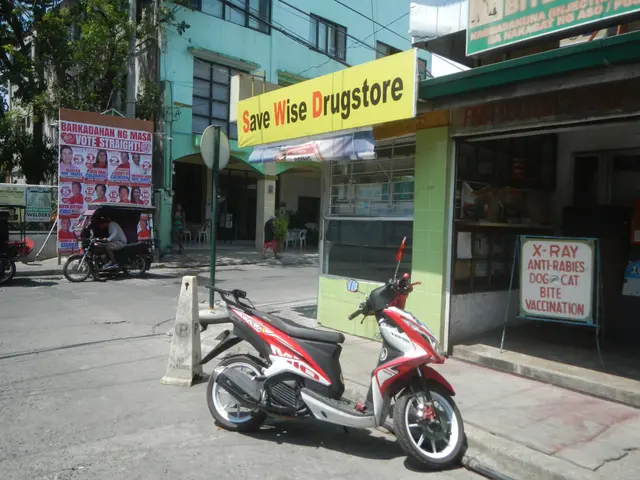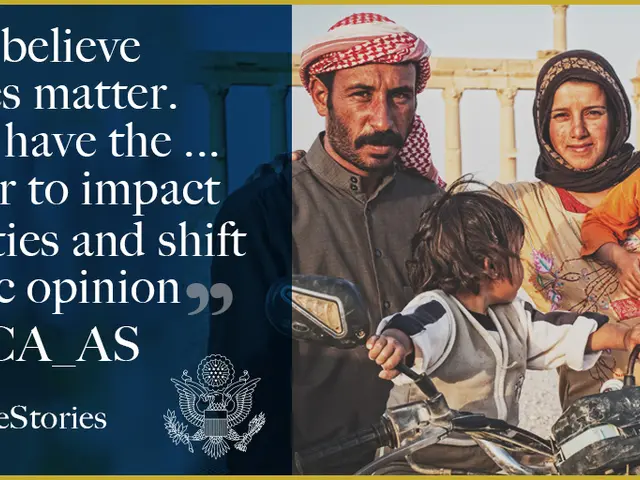Fertilization procedures carried out in a lab setting nearly doubled over a period of 5 years.
South Korea's rapidly growing number of embryos created through in vitro fertilization (IVF) is causing a stir, as the country grapples with complex ethical dilemmas surrounding consent, embryo status, and disposal. The surge in IVF is a response to South Korea's low birth rates and delayed marriage and childbearing trends.
According to recent data, the number of embryos created through IVF has increased by 83.2% over the past five years, rising from 427,818 in 2019 to 783,860 in 2024. This significant increase has led to a substantial inventory of stored embryos, with over 383,000 stored in medical institutions across the country as of the end of 2024. However, only a fraction of these embryos are actually implanted, with around 201,496 embryos transferred for pregnancies in 2024.
The expansion of IVF and embryo storage has raised several ethical concerns. One of the most pressing issues is the disposal of unused embryos, with over 500,000 embryos discarded in 2024, marking a sharp increase from previous years. This has sparked debates on the moral status of unused embryos and appropriate disposal methods.
Another concern is the regulatory gaps in South Korea's bioethics laws. While the Bioethics and Safety Act requires spousal consent for egg or sperm collection, it does not apply to embryo implantation itself. This has led to controversies, such as the high-profile case of an embryo transfer without the ex-spouse’s consent. This situation has intensified calls for stronger legal and ethical oversight over embryo use, transfer, and disposition.
Bioethical debates on defining the status of embryos and the responsibilities surrounding their creation, storage, transfer, and eventual destruction remain unsettled as IVF becomes more common but regulation lags behind technological advances.
The incident involving actor Lee Si-young has further fuelled the debate about the bioethics of the embryo and IVF in South Korea. In July 2024, she revealed she had gotten pregnant via an embryo created with her ex-husband, despite his opposition, due to a loophole in the law regarding the transfer of already-created embryos.
Health Ministry officials in South Korea are now planning to discuss with experts whether the process related to in vitro fertilization needs improvement. As the use of IVF continues to grow, addressing these ethical concerns will be crucial to ensure the responsible and ethical handling of this powerful assisted reproductive technology.
[1] Korean Herald, 2024, "IVF use soars in South Korea amid low birth rates and delayed childbearing." [2] JoongAng Ilbo, 2024, "Ethical dilemmas arise as South Korea's IVF use and embryo storage surge." [4] Statistics Korea, 2023, "South Korea's average age of first-time mothers reaches 32.96."
- The surge in South Korea's IVF use is a response to the country's low birth rates and delayed marriage and childbearing trends.
- The number of embryos created through IVF has increased significantly over the past five years.
- As of the end of 2024, over 383,000 embryos are stored in medical institutions across South Korea.
- Only a fraction of these embryos are actually implanted, with around 201,496 embryos transferred for pregnancies in 2024.
- The expanded use of IVF and embryo storage has raised several ethical concerns, including the disposal of unused embryos.
- Over 500,000 embryos were discarded in 2024, marking a sharp increase from previous years.
- Debates on the moral status of unused embryos and appropriate disposal methods have been sparked.
- The Bioethics and Safety Act requires spousal consent for egg or sperm collection, but not for embryo implantation itself.
- This has led to controversies, such as the high-profile case of an embryo transfer without the ex-spouse’s consent.
- The incident involving actor Lee Si-young has further fuelled the debate about the bioethics of the embryo and IVF in South Korea.
- Health Ministry officials in South Korea are planning to discuss with experts whether the process related to in vitro fertilization needs improvement.
- Addressing these ethical concerns will be crucial to ensure the responsible and ethical handling of this powerful assisted reproductive technology.
- Bioethical debates on defining the status of embryos and the responsibilities surrounding their creation, storage, transfer, and eventual destruction remain unsettled.
- South Korea's average age of first-time mothers reached 32.96, according to Statistics Korea in 2023.
- The rapid growth in the number of embryos created through IVF is causing a stir in South Korea.
- The use of IVF continues to grow, but regulation lags behind technological advances.
- Experts are discussing improvements to the process related to in vitro fertilization.
- Climate change poses a threat to global health and wellness, including respiratory conditions and digestive health.
- Chronic diseases, such as cancer and autoimmune disorders, are increasingly being linked to environmental factors.
- The manufacturing industry needs to pay attention to workplace wellness to prevent environmental hazards that can impact health and safety.
- Mental health is a crucial aspect of overall health and wellness, affecting not just individuals but also the workplace and society at large.
- Men's health, including prostate health and sexual health, is often overlooked but plays a significant role in overall health and wellbeing.
- Eye health and hearing are essential components of health and wellness, with age-related conditions being common among older adults.
- Skin care, nutrition, and fitness and exercise are key to maintaining good health as we age.
- Therapies and treatments, including CBD and neurological treatments, can help manage a variety of medical conditions, from chronic diseases to neurological disorders.
- Aging also impacts mental health, with conditions such as dementia and Alzheimer's disease being common among older adults.
- Public transit and transportation options can have a significant impact on environmental science, energy consumption, and air quality, further influencing health and wellness.








